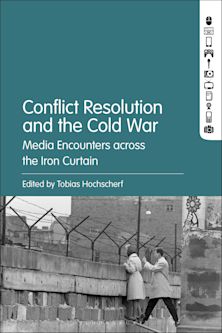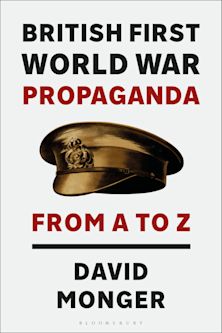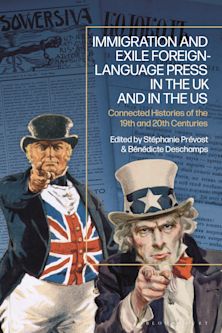- Home
- ACADEMIC
- Film & Media
- Media History
- This Is the American Forces Network
This Is the American Forces Network
The Anglo-American Battle of the Air Waves in World War II
This Is the American Forces Network
The Anglo-American Battle of the Air Waves in World War II
This product is usually dispatched within 1 week
- Delivery and returns info
-
Free US delivery on orders $35 or over
You must sign in to add this item to your wishlist. Please sign in or create an account
Description
During World War II, radio broadcasts were fundamental to the morale of the allied troops. When Americans attempted to establish their own network, the Armed Forces Network (AFN), the BBC initially resisted. This documented account of the disputes between Britain and the United States in regard to the airwaves illustrates how, despite the tensions and with the intervention of General Eisenhower and Winston Churchill, the relationship succeeded. It details the political machinations with which the BBC attempted to thwart the development of the AFN and the strategies by which the Americans established and operated the network. It was not long before the AFN captivated a wide British audience and introduced it to the American big bands, such as the Glenn Miller orchestra, and entertainers like Jack Benny and Bob Hope. The tensions and compromises between the two broadcasting networks reflected the disagreements and concessions characteristic of the overall Anglo-American alliance.
This lively chronicle of the frictions between the BBC and the AFN, and the portrait it paints of wartime Britain will appeal to a number of audiences, from scholars of the history of broadcasting, to wartime music buffs, to those interested in the politics of World War II, and to the veterans who served in the war.
Table of Contents
The Reason Why
The Battle Is Joined
AFN on the Air
Programs and Personalities
BBC and AFN
Forces Broadcasting
"The Greatest Radio Show in History"
AEFP Birth Pangs
AEFP "Politics and Intrigue"
"The Best Entertainment Program Ever"
AFN on the Radio to Berlin
AFN Post-War
Afterthoughts and Memories
Transmitters
AFN Program Schedule
Sources
Index
Product details
| Published | Jan 30 2001 |
|---|---|
| Format | Hardback |
| Edition | 1st |
| Extent | 200 |
| ISBN | 9780275969011 |
| Imprint | Praeger |
| Dimensions | 9 x 6 inches |
| Publisher | Bloomsbury Publishing |



































